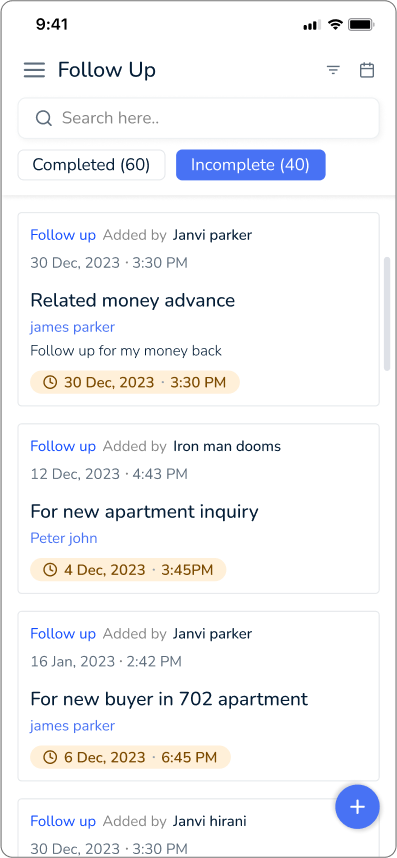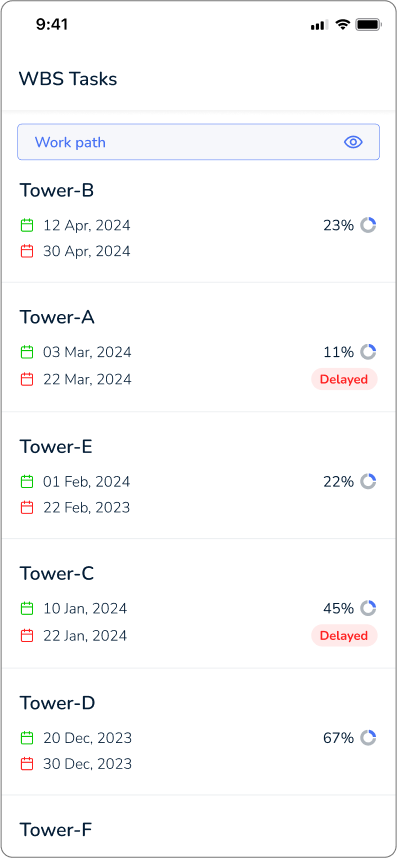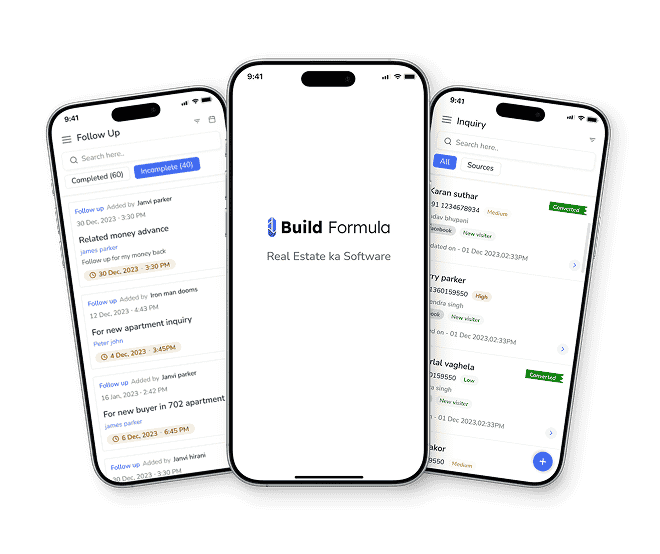
SaaS is basically a software service that is cloud-based. It is a subscription-based software that can be used via a web browser or API, rather than installing it on a local hard drive or server. SaaS stands for Software as a Service. It is a model of software delivery where applications are provided over the Internet by a service provider. Users can access the software through a web browser or API, without the need for installation or maintenance on their own devices or servers. With SaaS, users typically pay a subscription fee to access and use the software, and the service provider is responsible for hosting, maintaining, and updating the application. This approach allows for easy scalability, as the service provider can accommodate a large number of users and handle the infrastructure requirements.
What is Property Tech? How PropTech is Transforming the Real Estate Sector?
As the name suggests Property Technology or PropTech refers to the use of technology in the real estate industry to improve and optimize various aspects of property management and transactions. It includes various types of real estate applications and software, including the use of virtual tours of property, online property listing platforms, smart home devices, and blockchain for secure and transparent property transactions.
Real estate and technology go hand in hand today. This digital transformation is carving the new smart real estate landscape. PropTech is altering the commercial real estate sector by streamlining and automating processes, improving access to property information, and enhancing the overall customer experience. Real estate technology has revolutionized the way properties are advertised, bought, and sold, making the entire process more efficient and convenient for real estate investors, sellers, and agents. Technology in real estate is poised to continue reshaping the real estate market, driving innovation, and delivering more efficient and sustainable solutions for real estate agents and builders.
Why is SaaS better than on-premise software?
There are n number of reasons why SaaS is way better than traditional on-premise software. Here are a few prominent reasons why SaaS is considered better:
1. Cost-Effective:
You do not have to break the bank to invest in a SaaS. Prominent SaaS operate on a subscription model, meaning you only need to pay for the duration of your usage within a month. SaaS eliminates the need for upfront investments in hardware, infrastructure, and software licenses. This cost-effective approach proves beneficial, particularly for small and medium-sized enterprises.
2. Scalability:
SaaS provides the flexibility to scale up or down according to business needs. Organizations can easily add or reduce the number of users, storage capacity, or features based on demand. This scalability ensures that businesses are not locked into a fixed system and can adapt as required.
3. Accessibility and Mobility:
Gone are the days when you used to carry your laptop to access software. Cloud-based software enables you to access it from your mobile device, tablet, or laptop as long as you have an internet connection. Users can collaborate and work remotely, facilitating a mobile and flexible workforce. This accessibility leads to improved productivity and efficiency.
4. Continuous Updates and Maintenance:
SaaS providers handle all software updates, patches, and maintenance tasks. This saves businesses from the hassle of manually updating and maintaining software, ensuring they always have access to the latest features and enhancements. It also removes the burden of IT management from the organization.
5. Data Recovery:
You can rest assured about the security of your data even if your device is damaged. Since all of your data is stored in the cloud, it remains safe and unaffected by any harm to a specific device. This sets it apart from on-premise software, which can be lost along with a damaged device. SaaS providers typically have robust disaster recovery plans and data backup systems in place. In case of any unforeseen events or data loss, businesses can rely on these backup systems to ensure continuity and minimize downtime.
Overall, SaaS offers numerous advantages over traditional on-premise software, making it the preferred choice for many businesses across various industries.
How is SaaS Impacting Real Estate Industry
Automation:
A good Software for real estate can automate many tasks of real estate professionals. Many real estate transactions that need human effort like leads management, follow-up of leads, payment scheduling, and payment reminders can now be automated, thanks to technology.
For instance, leads management, which typically involves manually inputting and organizing data, can now be streamlined through SaaS applications. Follow-up of leads, another crucial aspect of real estate, can also be automated, ensuring that no potential clients slip through the cracks. Payment scheduling and reminders, which previously required constant monitoring and manual effort, can now be handled effortlessly with the help of SaaS solutions. Not only does this automation save time, but it also reduces the chances of errors and improves overall efficiency. Real estate professionals can now focus on more important aspects of their job, such as building relationships with clients and closing deals, thanks to the automation capabilities of SaaS.
Digitized documents
With the advent of SaaS, there is no longer a need to carry pen and paper to business meetings. Now, all your documents can be digitized and stored online, making it easier to access and manage. The data is centralized, allowing you to edit, delete, and share anytime and anywhere. This digital solution not only saves time and space but also provides a more efficient way of handling documents. No longer will you have to worry about losing or misplacing important papers. Embracing SaaS technology allows for a seamless and convenient experience in organizing and collaborating on documents for your business needs.
Transparency
Since all the data is available in a unified platform it leads to transparency among all the stakeholders. Since all the data is available in a unified platform, provided by SaaS (software as a service), it leads to transparency among all the stakeholders. With this technology, there is no room for miscommunication or hidden information, as everything is easily accessible and visible to all parties involved. This fosters a sense of trust and open communication between stakeholders, as there is no ambiguity or doubt regarding the information being shared. SaaS ensures that everyone has access to the same data, promoting transparency and enabling informed decision-making.
Efficiency
SaaS, or Software as a Service, has become a game-changer for the real estate industry by significantly improving the overall efficiency of businesses. With its cloud-based technology, SaaS has streamlined various management tasks, making them quicker and easier to handle. One of the key benefits of SaaS in real estate is its ability to automate and centralize processes such as property management, lease administration, and tenant communication. This eliminates the need for manual data entry, reduces human errors, and increases productivity. Additionally, real estate professionals can access critical data and collaborate with team members from any location, further enhancing efficiency. SaaS solutions also provide advanced analytics and reporting features, enabling businesses to gain valuable insights into their operations and make informed decisions. Overall, the adoption of SaaS in the real estate industry has proven to be a worthwhile investment, enabling businesses to streamline their management tasks and enhance their operational efficiency.
Applications of SaaS Solutions:
Real Estate CRM Software
Real Estate CRM Software is changing the way the Indian real estate industry works. CRM software are cloud-based management system where all the client data, accounts, and documents can be stored in a centralized platform. Real estate companies can efficiently track & and follow up on leads, close deals, monitor customer preferences, and track payments. Not only that, analytics and reporting capabilities provide valuable information about customer behaviors and market trends, allowing agents to make data-driven decisions in the future.
Property Management:
The introduction of SaaS has transformed the way property management is conducted by providing all-inclusive solutions to streamline operations. Through the utilization of cloud-based platforms, property managers are able to effectively manage rent collection, maintenance requests, and lease agreements. Automated functions, including reminders for lease renewals or rent payments, enhance work processes and diminish administrative responsibilities, ultimately leading to enhanced efficiency and tenant contentment. Streamline property management and drive efficiency in real estate.







